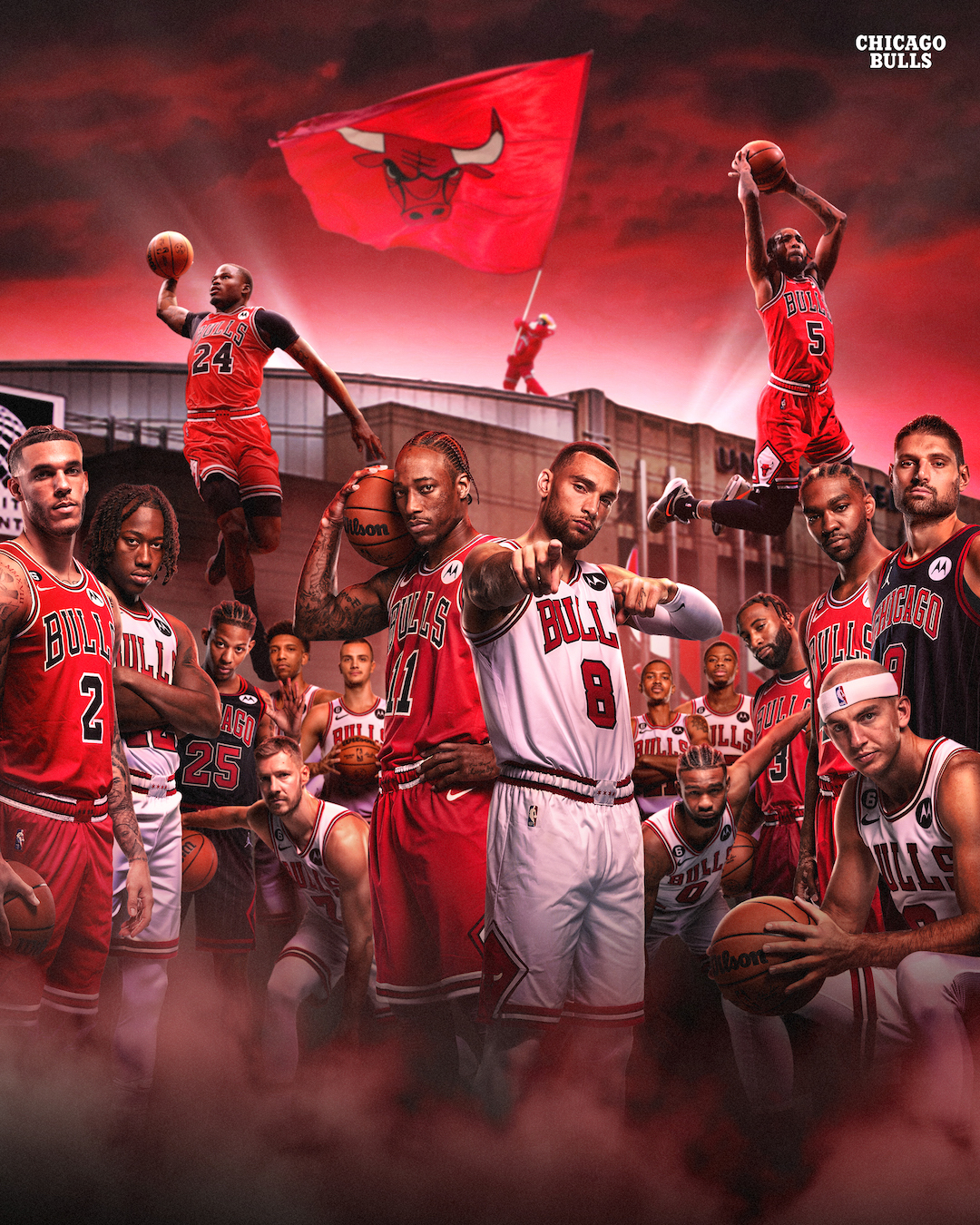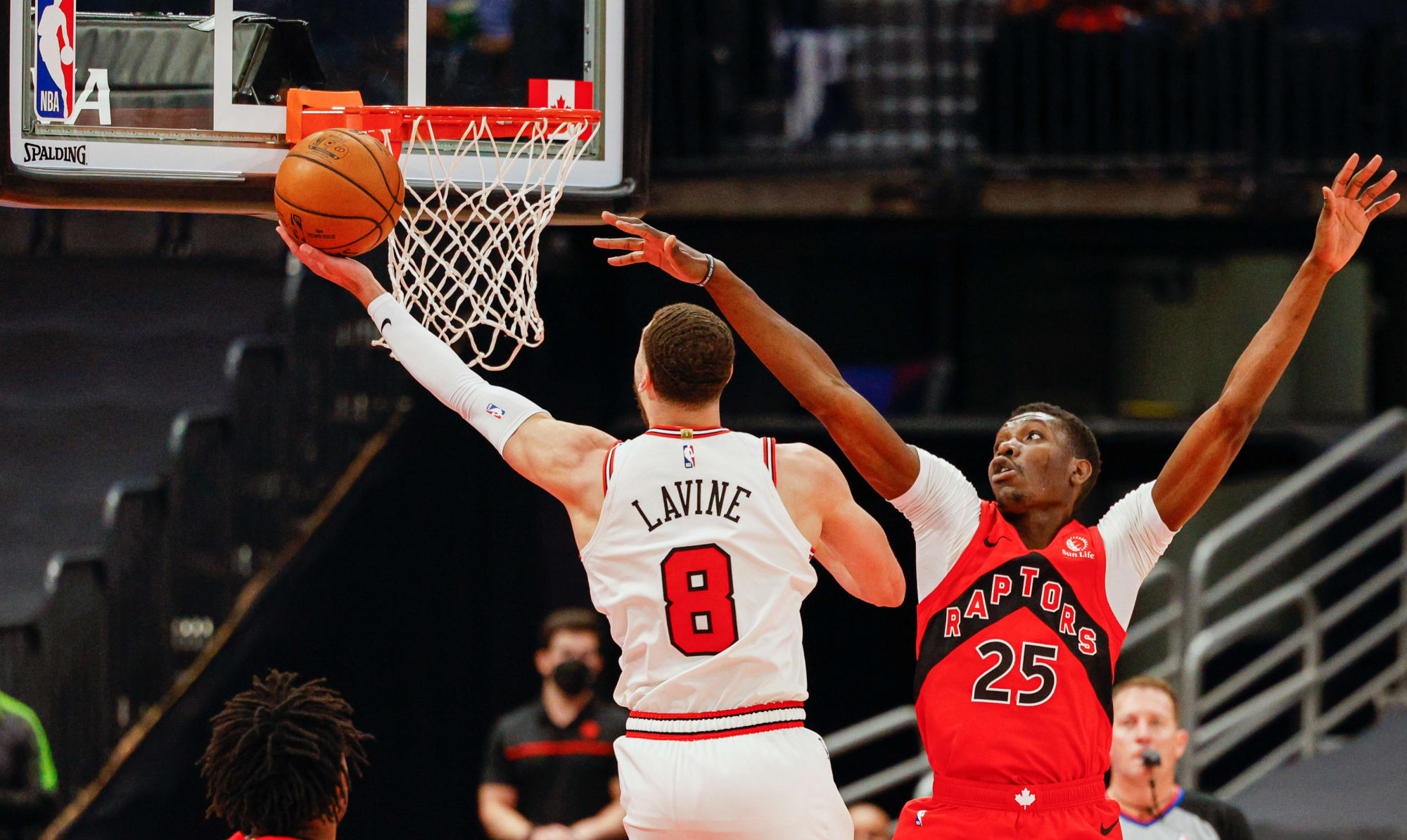The Chicago Bulls contracts have always been a topic of immense interest for basketball enthusiasts worldwide. As one of the most iconic teams in NBA history, understanding the dynamics of player agreements, salary structures, and future prospects is crucial for fans and analysts alike. This article dives deep into the intricacies of the Bulls' contracts, offering insights that cater to both casual fans and seasoned NBA followers.
From Michael Jordan's era to the modern-day roster, the Chicago Bulls have consistently been at the forefront of building formidable teams. Contracts play a pivotal role in shaping the team's future, determining player retention, and ensuring competitive balance within the league. As such, staying informed about the Bulls' contracts can provide valuable insights into the team's strategies and potential success.
In this article, we will explore various aspects of Chicago Bulls contracts, including player agreements, salary cap implications, and future projections. By understanding these elements, fans can gain a better appreciation of how the team operates and what lies ahead for the Bulls in the ever-evolving NBA landscape.
Read also:Exploring The Artistic World Of Plumpy Mage Eva
Table of Contents
- History of Chicago Bulls Contracts
- Current Roster and Contracts
- Understanding the NBA Salary Cap
- Key Players and Their Contracts
- Long-Term Contract Strategies
- Free Agency and Its Impact
- Future Prospects for the Bulls
- Financial Impact of Contracts
- Contract Negotiations and Extensions
- Conclusion and Call to Action
History of Chicago Bulls Contracts
Chicago Bulls contracts have played a significant role in the team's storied history. The Bulls' success during the 1990s was largely attributed to the strategic management of player agreements and salaries. Michael Jordan's contract, for instance, became a benchmark for future negotiations in the NBA. Despite being relatively modest compared to today's standards, Jordan's deal reflected the Bulls' commitment to securing top-tier talent.
In the early years, the Bulls were known for their ability to strike balanced deals that maximized player performance while staying within budget constraints. This approach helped the team achieve six NBA championships during the Jordan era. As the league evolved, so did the complexity of contracts, with the Bulls adapting to new regulations and financial structures.
Key Historical Contracts
- Michael Jordan: Revolutionized player compensation with his landmark deals.
- Scottie Pippen: Demonstrated the importance of long-term contracts for core players.
- Derrick Rose: Highlighted the challenges of negotiating contracts for injury-prone stars.
Current Roster and Contracts
The current Chicago Bulls roster features a mix of established veterans and promising young talent. Understanding the details of their contracts provides insight into the team's short-term and long-term plans. As of the latest season, several players are signed to lucrative deals that reflect their contributions to the team's success.
Zach LaVine, for example, signed a multi-year extension that solidified his role as a cornerstone player. Similarly, DeMar DeRozan's contract underscores the Bulls' commitment to maintaining a competitive lineup. By analyzing these agreements, fans can better appreciate the team's strategy in building a championship-caliber roster.
Breakdown of Key Contracts
- Zach LaVine: Multi-year deal securing his future with the Bulls.
- DeMar DeRozan: Contract reflecting his importance to the team's offensive game plan.
- Nikola Vucevic: Agreement highlighting the team's focus on strengthening the frontcourt.
Understanding the NBA Salary Cap
The NBA salary cap is a critical factor influencing Chicago Bulls contracts. Established to ensure competitive balance across the league, the salary cap determines how much teams can spend on player salaries. For the Bulls, managing the cap effectively is essential to maintaining a competitive roster while adhering to league regulations.
Recent seasons have seen the Bulls navigate the salary cap with strategic moves, including trades and contract extensions. By understanding the nuances of the cap system, the team has been able to attract top talent while retaining key players. This approach has positioned the Bulls as a formidable contender in the Eastern Conference.
Read also:Exploring The Life And Career Of Catalina Stoltz Beyond The Mystery Of Her Age
Salary Cap Implications
- Cap space management: Crucial for signing free agents and retaining core players.
- Luxury tax considerations: Balancing competitiveness with financial responsibility.
- Player value assessment: Evaluating performance against salary commitments.
Key Players and Their Contracts
Several key players on the Chicago Bulls roster have contracts that significantly impact the team's future. Zach LaVine, DeMar DeRozan, and Nikola Vucevic are among the players whose agreements shape the team's direction. Each contract reflects the player's contributions and the Bulls' long-term goals.
Zach LaVine's deal, in particular, demonstrates the team's commitment to building around a dynamic scoring threat. DeMar DeRozan's contract complements this strategy by providing a reliable veteran presence, while Nikola Vucevic's agreement strengthens the Bulls' interior game. Together, these players form the backbone of the team's offensive and defensive strategies.
Player Contributions
- Zach LaVine: Dynamic scoring and playmaking abilities.
- DeMar DeRozan: Experienced leadership and mid-range scoring prowess.
- Nikola Vucevic: Dominant presence in the paint and versatile skill set.
Long-Term Contract Strategies
The Chicago Bulls have adopted a strategic approach to long-term contracts, focusing on securing key players while maintaining flexibility for future moves. This strategy involves evaluating player potential, market trends, and financial implications before committing to multi-year deals.
By prioritizing player development and performance, the Bulls aim to build a sustainable competitive advantage. Long-term contracts for core players like Zach LaVine and Nikola Vucevic reflect this commitment, ensuring continuity and stability within the roster. Additionally, the team's willingness to explore trades and sign role players on shorter deals enhances roster flexibility.
Strategic Considerations
- Player development: Investing in young talent with long-term potential.
- Market trends: Adapting to evolving salary structures and player demands.
- Financial responsibility: Balancing competitiveness with prudent spending.
Free Agency and Its Impact
Free agency plays a pivotal role in shaping Chicago Bulls contracts and roster dynamics. Each offseason, the team evaluates available talent, assessing how free agents can complement existing players and address areas of need. Successful free agency moves have been instrumental in bolstering the Bulls' lineup over the years.
Recent signings, such as DeMar DeRozan and Lonzo Ball, exemplify the Bulls' ability to attract high-profile players during free agency. These additions have strengthened the team's roster, providing depth and versatility. By leveraging free agency effectively, the Bulls aim to remain competitive in the NBA's ever-changing landscape.
Free Agency Success Stories
- DeMar DeRozan: Enhanced scoring and leadership capabilities.
- Lonzo Ball: Added playmaking and defensive versatility.
- Alex Caruso: Provided defensive tenacity and energy off the bench.
Future Prospects for the Bulls
Looking ahead, the Chicago Bulls have a promising future shaped by their current contracts and strategic planning. With key players signed to long-term deals, the team is well-positioned to maintain competitiveness in the Eastern Conference. Additionally, the Bulls' focus on player development and roster flexibility ensures they can adapt to future challenges.
Upcoming draft picks and potential trades further enhance the team's prospects. By balancing current needs with future opportunities, the Bulls aim to build a sustainable championship contender. Fans can look forward to exciting developments as the team continues to evolve and refine its roster.
Upcoming Opportunities
- Draft picks: Potential additions to bolster the roster.
- Trade possibilities: Exploring options to enhance team depth.
- Player development: Fostering young talent for long-term success.
Financial Impact of Contracts
The financial impact of Chicago Bulls contracts extends beyond player salaries, influencing the team's overall operations and business strategies. Managing the salary cap effectively ensures the Bulls can invest in other areas, such as coaching staff, training facilities, and community initiatives.
By prioritizing financial responsibility, the Bulls aim to create a well-rounded organization that supports both on-court success and off-court growth. This holistic approach reflects the team's commitment to excellence in all aspects of its operations. As the NBA continues to evolve, the Bulls' financial strategies will play a crucial role in sustaining their competitive edge.
Financial Considerations
- Salary cap management: Ensuring compliance and maximizing resources.
- Revenue generation: Exploring opportunities to enhance financial stability.
- Community engagement: Investing in programs that benefit fans and the local community.
Contract Negotiations and Extensions
Contract negotiations and extensions are integral to the Chicago Bulls' roster management strategy. By engaging in proactive discussions with players and agents, the team seeks to secure favorable agreements that align with its long-term goals. This approach has resulted in successful extensions for key players, ensuring continuity and stability within the roster.
Effective communication and transparency during negotiations are essential for building trust and fostering positive relationships. The Bulls' commitment to fair and equitable agreements has earned them a reputation as a player-friendly organization. As the team continues to pursue championships, contract negotiations will remain a critical component of their success.
Negotiation Strategies
- Open communication: Establishing trust and transparency with players and agents.
- Performance-based incentives: Encouraging excellence through contract structures.
- Long-term planning: Aligning player agreements with team goals and vision.
Conclusion and Call to Action
In conclusion, Chicago Bulls contracts are a vital aspect of the team's success and future prospects. From historical agreements to current roster dynamics, understanding the intricacies of player agreements provides valuable insights into the Bulls' strategies and aspirations. By staying informed about contracts, salary cap implications, and free agency moves, fans can better appreciate the team's efforts to build a championship-caliber roster.
We invite you to share your thoughts and insights in the comments section below. Engage with fellow fans and analysts to discuss the latest developments in Chicago Bulls contracts and roster management. Additionally, explore other articles on our site for more in-depth coverage of NBA teams and player agreements. Together, let's celebrate the exciting journey of the Chicago Bulls in the NBA!


